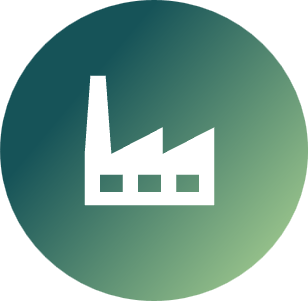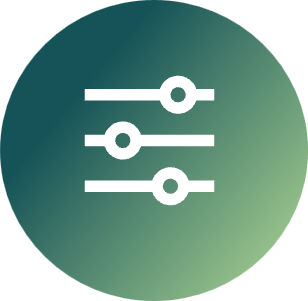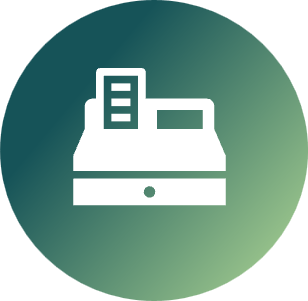NetSuite Enterprise Resource Planning (ERP) has evolved significantly over the last 10-15 years as technology has advanced and user needs have changed. It leverages machine learning technology, mobile capabilities, and powerful analytics engines that help companies make better decisions, along with a broad selection of integrated applications that you can use to run your end-to-end enterprise.
At its core, ERP platforms like NetSuite are comprised of different “modules,” each of which addresses one or more business functions. All these modules come together and share a single, consolidated database accessible to all authorized users.
With everyone working from the same data “playbook,” organizations can operate as a single, cohesive enterprise—versus a bunch of different, siloed departments that don’t know what the next department is doing. This level of cohesiveness is out of reach when companies stick to using point solutions, disparate systems, and spreadsheets to run their operations.
“An ERP solution automates critical business processes and serves as a shared database for all financial and operational information from across the company,” Lisa Schwarz writes in NetSuite Modules Guide: Key Modules, Pricing & FAQs. “It pulls this data from a number of modules built to help various departments – accounting, manufacturing or human resources, for example – perform their individual functions.”
NetSuite also gives all employees access to the information they need to answer important questions about their department's current performance and future planning, as well as target areas for improvement. “This single source of information minimizes data accuracy and consistency issues and ensures everyone is looking at the same numbers, no matter their role,” Schwarz explains. “It also drives better decision-making that leads to more efficient processes and cost savings.”
Unlock the Power of NetSuite’s Core Modules
As a unified suite of applications, NetSuite is designed to easily add functionality as your business needs evolve. Navigating NetSuite's core functionalities may be daunting for anyone who is currently evaluating ERPs, so we’ve written a guide to help you understand core NetSuite features and how each module empowers organizations:

Finance and accounting. Key features of this module include tracking accounts payable (AP) and accounts receivable (AR) and managing the general ledger. This module also creates and stores crucial financial documents like balance sheets, payment receipts, and tax statements. NetSuite also automates tax calculations, ensures compliance, and helps you file tax returns with ease. It also offers comprehensive financial reports that give you a window into your company’s financial performance right at your fingertips.

Procurement. Also known as the purchasing module, procurement helps organizations secure the materials or products they need to manufacture and/or sell goods. Companies can keep a list of approved vendors in this module and tie those suppliers to certain items, helping with supplier relationship management. The module can automate requests for a quote, and then track and analyze the quotes that come in.

Manufacturing. NetSuite’s manufacturing module helps manufacturers plan production and ensure that they have all of the materials and machinery capacity needed for planned production runs. During the manufacturing process, this module can also update the status of goods-in-progress and help companies track actual output against forecasted production.

Inventory Management. This module offers a complete picture of not only current but also incoming inventory, through an integration with the procurement tool. You can use it to manage inventory costs and ensure that you have sufficient stock without tying up too much cash in inventory. This module will also help prevent stockouts and delays, both of which can negatively impact the customer experience. Track inventory levels, automate purchase orders and simplify assembly of complex products with bill of material (BOM) tracking.

Order Management. The order management module feeds all orders to the warehouse, distribution center, or retail store after customers place them and tracks their status as they’re prepared, fulfilled and shipped to the customer. It also prevents orders from being lost and boosts on-time delivery rates in order to keep customers happy and reduce the unnecessary expense of expedited shipping.

Customer Relationship Management (CRM). The NetSuite CRM stores all customer and prospect information. That includes the company’s communication history with a person—the date and time of calls and emails, for example—and their purchase history. Many businesses also use CRM to manage sales leads and opportunities. For example, the module can track communication with prospects and suggest which customers should be targeted for certain promotions or cross-sell opportunities.
There’s More to NetSuite than Meets the Eye
Along with its robust lineup of core functionalities, NetSuite also offers a broad array of integrated applications that manage different aspects of your growing business. Then, the ERP delivers all the related data back to a single source of truth that your team can rely on.
Whether you want to automate certain aspects of your end-to-end supply chain, get international subsidiaries working from a single platform or streamline your human resources management, NetSuite has a solution to your pain points.
Implementing a new ERP system can be a major undertaking for any company, and choosing the right partner to guide you through the process can make all the difference between success and failure. With a dedicated, experienced implementation partner like Vursor in your corner, you’ll be able to get the most out of your NetSuite investment, navigate any complexities with ease, and save time and money in the process.
